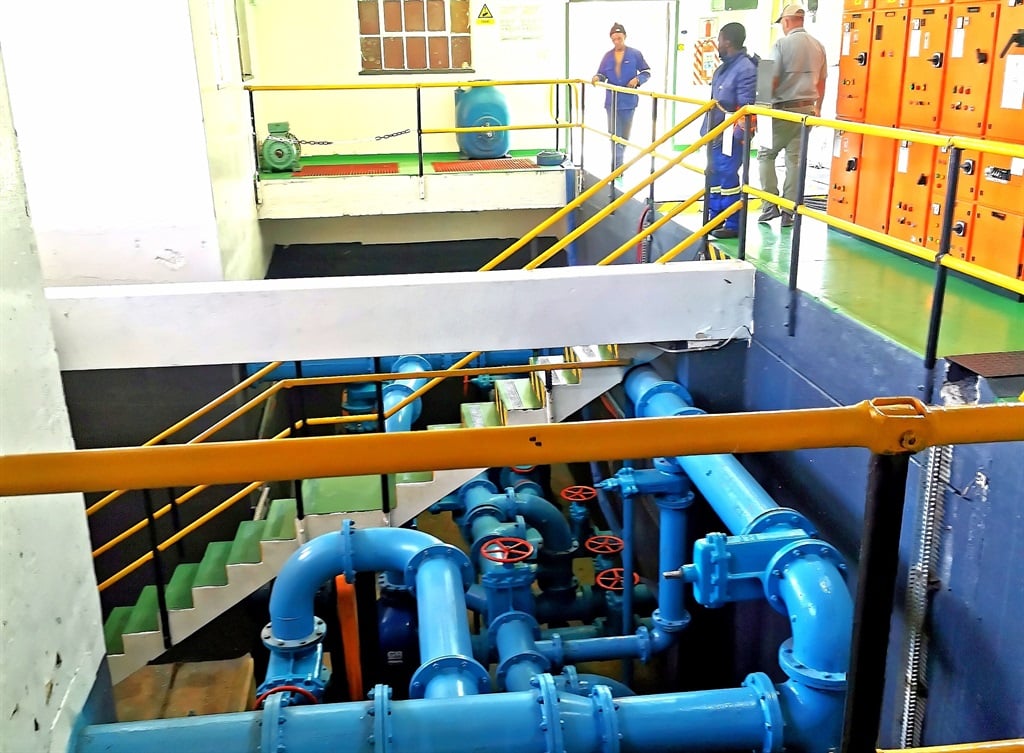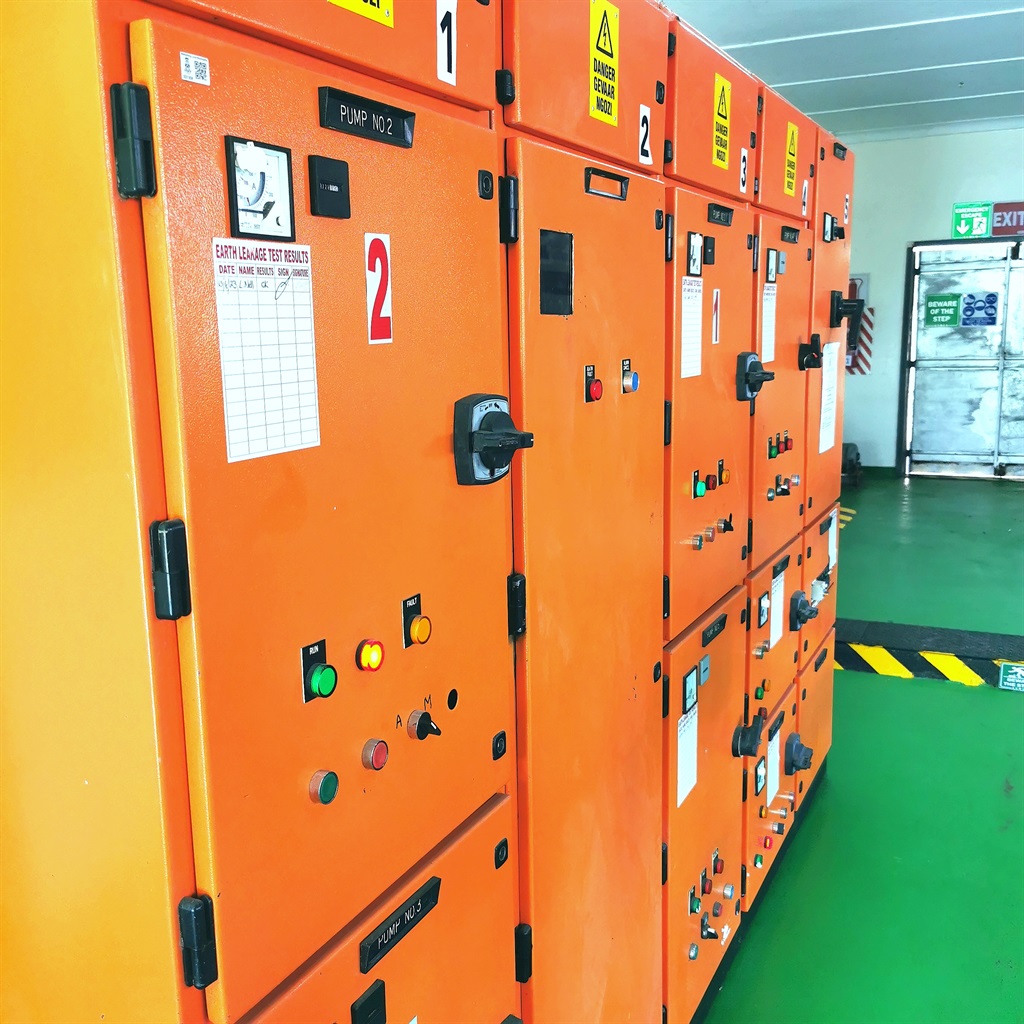
Two mining companies are proving to be a beacon of hope. They have stepped up to the plate and volunteered their assistance to a distressed municipality. In both cases, the impact has been significant, potentially measurable, and beneficial to society as a whole, writes Anthony Turton.
A couple of years ago, I gave a TEDx talk in Cape Town in which I spoke of the creativity of the mining industry and its ability to reinvent itself as a useful partner for rehabilitation in a post-mining landscape. It is, therefore, fitting that I should return to that moment with some observations about current affairs.
There are two good news stories about emerging partnerships between the mining sector and municipalities, specifically where mining companies are rehabilitating sewage plants. In Welkom, the sewage crisis is grave, with many manholes overflowing into the stormwater system, which drains naturally into Toronto Pan. This has a direct negative impact on all residents in Welkom, but it also threatens the mining industry because the rising level of water becomes a direct risk to mining operations.
It is, therefore, logical that the mining industry should reach out to the municipality and offer its support. One of the main sewage pump stations adjacent to Toronto Pan was taken over by a mining company and refurbished at their expense.
It now runs effectively and, when I visited the site, I was truly amazed at the cleanliness of the operation. Floors were spotlessly clean, electrical boards were fully functional and safe, and all pumps were humming in harmony as they were designed to originally do.
Rehabilitation of the sewage works
This was a remarkable achievement, in my professional opinion, because it became a beacon of hope in a city awash with despair caused by a collapsing economy and rising unemployment.
The second good news story is about a mining company that has brought its capacity to bear on the sewage works in Kimberley. The same mining company that rose to the occasion when flamingos were in distress at Kampfer Dam has now committed to cleaning out the clarifiers and refurbishing all the machinery needed to restore full functionality at the distressed sewage works.
This same company has also led the way in dealing with Zama Zama miners, a severe issue that threatens the viability of the entire mining industry. With the rehabilitation of the sewage works, the entire town benefits, as does every person looking for work or doing business there.
Let us use these two beacons of hope to catalyse new thinking about how to expand these ideas across the entire country.
In both cases, mining companies have stepped up to the plate and volunteered their assistance to a distressed municipality. In both cases the impact has been significant, potentially measurable, and beneficial to society as a whole, at least in their area of operations.
But, in both cases, it has been reflected as a direct cost to the mining operation, dependent entirely on the goodwill of the executives responsible to shareholders in those companies. This poses a challenge to the long-term viability of these endeavours, manifesting as a risk to the sustainability of the operation.
READ | Anthony Turton: Our dwindling national innovation capability
Therefore, we need to expand our thinking on how to make this Public Private Partnership (PPP) model more sustainable, so that these two examples can be replicated across the entire country.
The two core questions now become how to convert the socio-economic benefit into an alternative revenue stream to fund future operations and maintenance, and how to strengthen the hand of the regulator by giving them a carrot to incentivise good behaviour rather than a stick to punish bad behaviour.
On the first question – how can we develop alternative revenue streams to make the rehabilitation sustainable over time – there are amazing opportunities being unlocked by technologies capable of digitising the water value chain.
Imagine a series of sensors embedded in a sewage works, capable of accurately measuring process efficiency in real time and then reporting that to a safe destination hosted in the cloud. This is entirely possible with the Internet of Things (IoT) and has already been demonstrated in the sugar industry by a South African company based in Stellenbosch.
Encryption technologies
This data stream enables advanced analytics to be performed, predicting system stability at a high level of accuracy into the future. More importantly, this data can be protected with encryption technologies that ensure its reliability and trustworthiness.
Now, imagine that this reliable and trustworthy data can precisely measure the value of the socio-economic benefit, rendering a fungible asset that can be traded on a regulated market. For example, we can precisely quantify the monetary value of the negative impact of releasing untreated sewage into rivers.
READ | Anthony Turton: What took 50 years to occur in Hartbeespoort Dam, took only 3 years in the Vaal
We can also precisely measure how much the cost of rehabilitation is going to be. This can be done using reliable data housed by the "keeper of truth", which is an audited custodial repository of processed data against which the regulator can measure performance without being able to manipulate the numbers.
This data is then converted into a Water Credit, with financial value, verified by the Keeper of Truth. It thus becomes a fungible asset that can be traded on a market created for this purpose.
Mining companies can earn credits from rehabilitation work they engage in, but more importantly, the long-term burden of responsibility for maintaining the sewage works after they have been rehabilitated shifts away from the goodwill of the mining company.
All of a sudden, we have a whole new business model that is capable of sustaining rehabilitation mining. This is not a trivial matter because, in almost all cases, the municipality is insolvent and, therefore, unlikely to be able to maintain the sewage works after they have been repaired and handed back.
Emfuleni case
With this core concept firmly in mind, let us now examine how the regulator would be strengthened. At present, the regulator is the Department of Water and Sanitation (DWS). Historic experience has shown that the only instrument they have in their regulatory toolbox is a range of sanctions, including a fine or a criminal charge being laid against an offending municipality. Think of this as a big stick wielded by DWS.
We know, from the Emfuleni case, that this is ineffective because the municipality merely drags out the process in court using taxpayers' money, with no satisfactory outcome that benefits society as a whole.
However, with water credits in place, the regulator has real-time visibility of the performance of each polluting wastewater works by virtue of their access to a dashboard provided by the Keeper of Truth. This gives the regulator a powerful instrument of positive incentive because they can reward good behaviour rather than trying to punish bad behaviour.
Obviously, an empowered regulator is in our collective best interest as a society.
I firmly believe that these two mining companies are true pioneers who deserve our full support because of the benefits they bring to society. I also believe that their efforts contain the DNA of a future in which PPPs are rolled out wherever needed. Those PPPs would be sustainable, in part because of the alternative revenue stream they derive from the trading of water credits.
This type of thinking is taking root globally as we transition from a linear extractive economy to a circular beneficiation economy sustained by technologies associated with the digital revolution.
Ingenuity happens on the cusp of chaos, and there is no more chaotic place right now than the collapsing water sector in South Africa.
- Dr Anthony Turton is with the Centre for Environmental Management at the University of Free State.
Disclaimer: News24 encourages freedom of speech and the expression of diverse views. The views of columnists published on News24 are therefore their own and do not necessarily represent the views of News24.




 Publications
Publications
 Partners
Partners
























